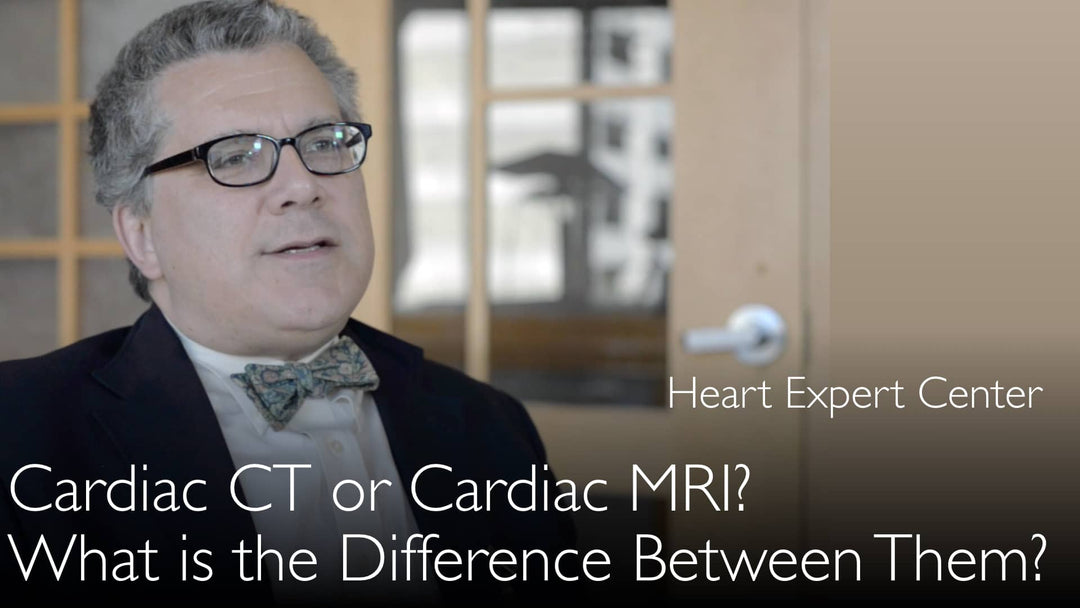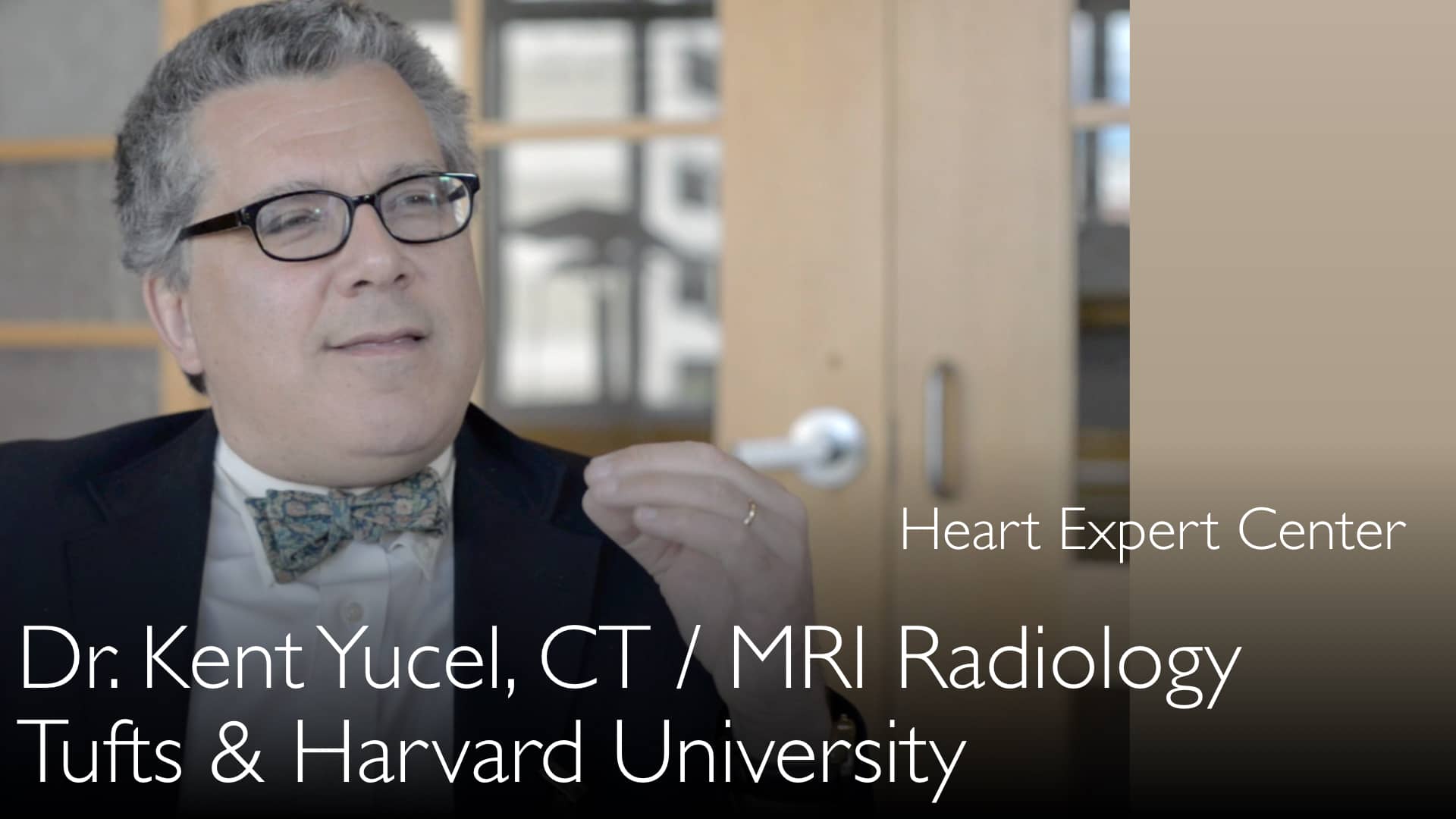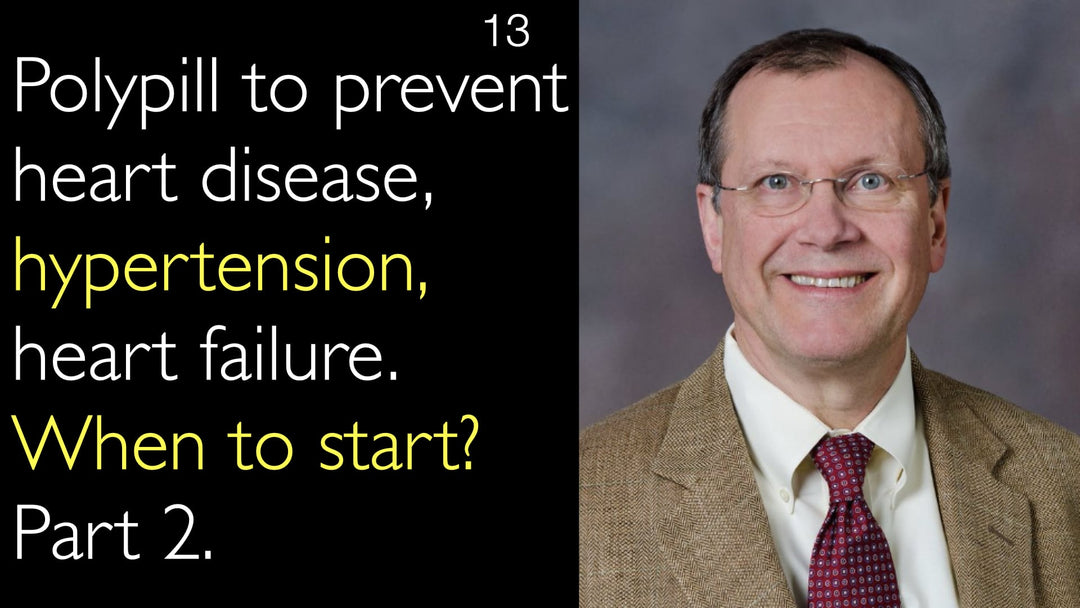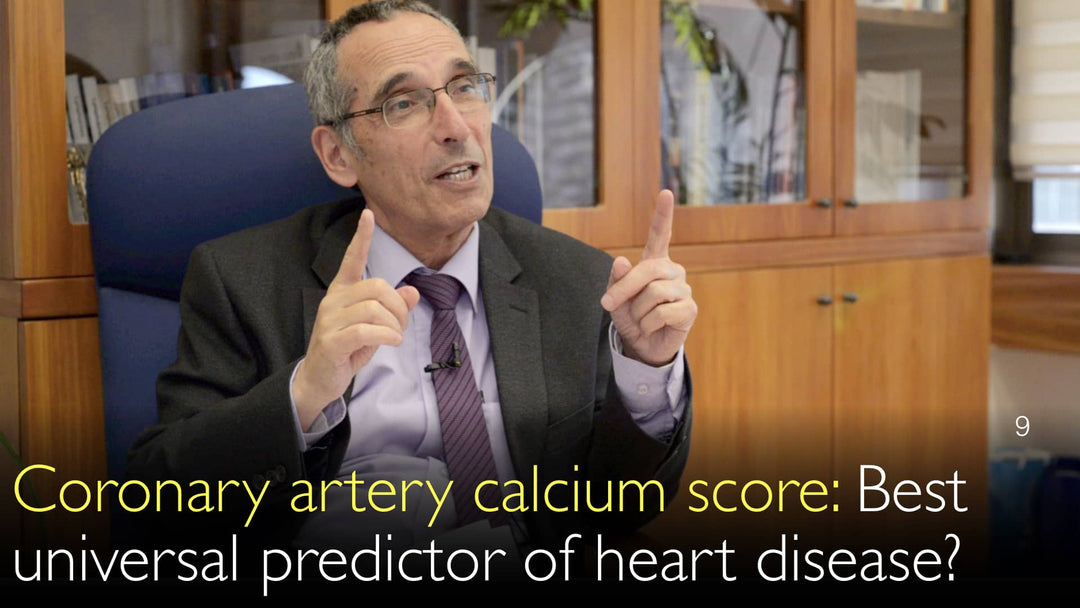O renomado especialista em imagem cardíaca, Dr. Kent Yucel, MD, explica as principais diferenças entre a tomografia computadorizada (TC) cardíaca e a ressonância magnética (RM) cardíaca. Ele detalha as indicações clínicas específicas de cada modalidade de imagem. A TC cardíaca é excelente para avaliar as artérias coronárias e detectar doenças. Já a RM cardíaca se destaca na avaliação da função e da estrutura do músculo cardíaco. Cada exame tem vantagens e limitações distintas, e a escolha depende inteiramente do quadro clínico do paciente.
Tomografia Cardíaca vs. Ressonância Magnética Cardíaca: Escolhendo o Exame de Imagem Cardíaco Adequado
Ir para a Seção
- Tomografia Cardíaca para Doença Arterial Coronariana
- Ressonância Magnética Cardíaca para Avaliação do Músculo Cardíaco
- Avaliação da Função Cardíaca com Ressonância Magnética e Tomografia
- Considerações sobre Radiação na Imagem Cardíaca
- Visão Geral das Indicações Clínicas
- Transcrição Completa
Tomografia Cardíaca para Doença Arterial Coronariana
A tomografia cardíaca é o exame de imagem de primeira escolha para avaliar as artérias coronárias. O Dr. Kent Yucel, MD, ressalta que a angiografia por tomografia computadorizada coronariana é o padrão-ouro para a avaliação não invasiva da doença arterial coronariana. Este exame oferece imagens detalhadas e de alta resolução dos vasos sanguíneos que irrigam o músculo cardíaco, permitindo identificar acúmulo de placa, estenoses (estreitamentos) e calcificações. O Dr. Anton Titov, MD, observa que a tomografia é indispensável para diagnosticar obstruções que podem levar a infartos do miocárdio.
Ressonância Magnética Cardíaca para Avaliação do Músculo Cardíaco
A ressonância magnética cardíaca é insuperável na avaliação do músculo cardíaco em si. O Dr. Kent Yucel, MD, explica que a ressonância magnética é superior para diagnosticar condições como miocardiopatia hipertrófica e para avaliar sequelas de infarto do miocárdio prévio. Ela oferece uma caracterização tecidual excepcional, permitindo aos médicos diferenciar entre tecido cardíaco saudável e cicatrizado. Essa análise detalhada é crucial para identificar a causa de anormalidades musculares detectadas em outros exames, como a ecocardiografia.
Avaliação da Função Cardíaca com Ressonância Magnética e Tomografia
Embora tanto a ressonância magnética cardíaca quanto a tomografia possam avaliar a função cardíaca, suas capacidades variam consideravelmente. O Dr. Kent Yucel, MD, afirma que a ressonância magnética cardíaca é a melhor ferramenta para essa finalidade, fornecendo medições altamente precisas da fração de ejeção e dos volumes das câmaras cardíacas. A tomografia cardíaca também oferece dados funcionais, mas não com a mesma proficiência da ressonância magnética. Em conversa com o Dr. Anton Titov, MD, destaca-se que os dados funcionais da ressonância magnética frequentemente orientam estratégias de tratamento para insuficiência cardíaca.
Considerações sobre Radiação na Imagem Cardíaca
Uma diferença crucial entre os exames é o uso de radiação ionizante. O Dr. Kent Yucel, MD, salienta que a tomografia cardíaca envolve exposição à radiação, um fator determinante na análise de risco-benefício para cada paciente. Já a ressonância magnética cardíaca utiliza campos magnéticos potentes e ondas de rádio, sem envolver radiação ionizante. Isso a torna preferível para exames de acompanhamento em pacientes mais jovens ou em condições que exigem monitoramento contínuo, conforme discutido pelo Dr. Anton Titov, MD.
Visão Geral das Indicações Clínicas
A escolha entre tomografia cardíaca e ressonância magnética é guiada pela questão clínica em questão. O Dr. Kent Yucel, MD, oferece uma orientação clara: pacientes com suspeita de doença arterial coronariana devem priorizar a tomografia cardíaca. Já aqueles com problemas conhecidos ou suspeitos no músculo cardíaco, miocardiopatias ou disfunções cardíacas inexplicadas devem optar pela ressonância magnética cardíaca. O Dr. Anton Titov, MD, conclui que compreender essa distinção assegura que os pacientes recebam o exame diagnóstico mais adequado e eficaz para sua condição.
Transcrição Completa
Dr. Anton Titov, MD: Tomografia cardíaca vs. ressonância magnética cardíaca: qual é a diferença entre tomografia e ressonância magnética do coração? Quando os pacientes devem optar por cada tipo de exame de imagem?
Um radiologista especialista em tomografia e ressonância magnética, com foco em imagem cardíaca e vascular, discute as vantagens relativas da tomografia cardíaca e da ressonância magnética cardíaca em diferentes tipos de doença cardíaca.
Dr. Anton Titov, MD: Vamos direto ao ponto. Qual é a diferença entre ressonância magnética cardíaca e tomografia cardíaca?
Dr. Kent Yucel, MD: A ressonância magnética é mais eficaz para avaliar o músculo cardíaco. A tomografia cardíaca é superior para avaliar a doença arterial coronariana.
Uma segunda opinião médica confirma a precisão e relevância dos achados da tomografia e da ressonância magnética. Também auxilia na definição da melhor estratégia de tratamento para insuficiência cardíaca congestiva ou miocardiopatia.
Busque uma segunda opinião médica sobre doença cardíaca e tenha certeza de que seu tratamento é o mais adequado.
Dr. Anton Titov, MD: Tomografia vs. ressonância magnética: diferenças e comparações—opinião de um radiologista de referência. O que é melhor: tomografia ou ressonância magnética?
Dr. Anton Titov, MD: Cada exame tem suas indicações específicas. Ressonância magnética cardíaca para diagnóstico de miocardiopatia hipertrófica.
Dr. Anton Titov, MD: Quais são as principais diferenças entre ressonância magnética cardíaca e tomografia cardíaca?
Dr. Anton Titov, MD: Quando um paciente deve realizar uma tomografia do coração ou uma ressonância magnética do coração?
Dr. Kent Yucel, MD: Existe alguma sobreposição entre a tomografia cardíaca e a ressonância magnética, além de características específicas. A ressonância magnética cardíaca é mais eficaz para avaliar o músculo cardíaco.
Por exemplo, após um infarto do miocárdio prévio ou para avaliar a função cardíaca. A ecocardiografia pode detectar anormalidades na função cardíaca, mas a ressonância magnética cardíaca é útil para identificar a causa dessas alterações musculares.
A tomografia também pode avaliar a função cardíaca, mas não com a mesma precisão que a ressonância magnética. Além disso, a tomografia cardíaca envolve exposição à radiação.
No entanto, a principal vantagem da tomografia cardíaca está na avaliação das artérias coronárias. Atualmente, a ressonância magnética cardíaca não é capaz de avaliar adequadamente as artérias coronárias.
Portanto, para doença arterial coronariana, os pacientes geralmente optam pela tomografia (angiografia por tomografia computadorizada coronariana). Para problemas de função cardíaca, tendem a preferir a ressonância magnética cardíaca.
Dr. Anton Titov, MD: Quais são os pontos fortes relativos da ressonância magnética e da tomografia?








